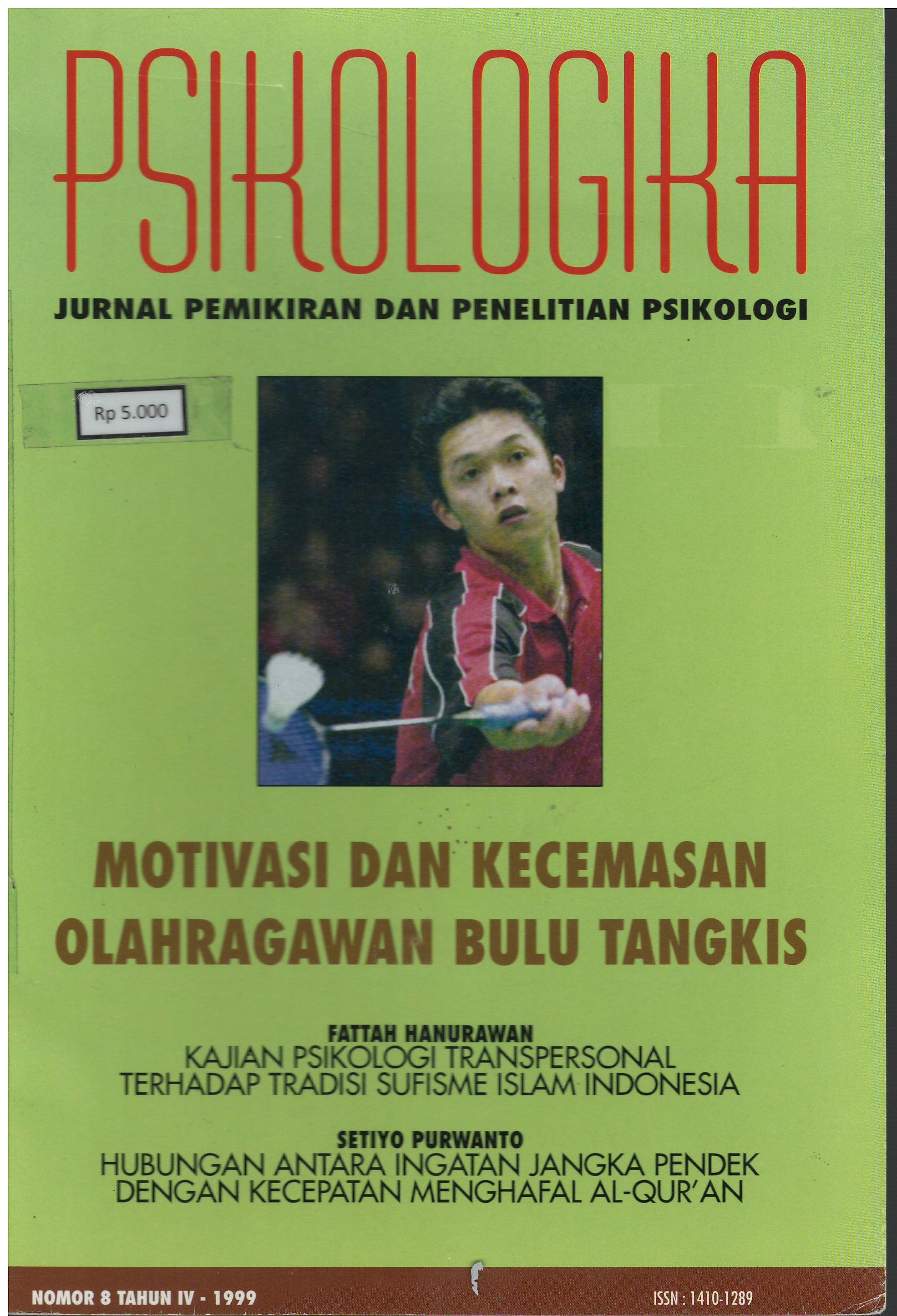Main Article Content
Abstract
Â
Tulisan ini bermaksud mendiskripsikan kemungkinan-kemungkinan suatu pengembangan disiplin psikologi transpersonal tentang perilaku penganut sufisme Islam yang berlatar belakang kehidupan kebudayaan Indonesia.
Psikologi transpersonal dapat didefinisikan sebagai disiplin psikologi yang menelaah topik-topik terkait dengan variasi dimensi-dimensi tingkah laku yang berhubungan dengan pengalaman transpersonal manusia. Menurut psikologi transpersonal, manusia terdiri dari struktur personal dan transpersonal. Struktur transpersonal merupakan puncak dari usaha pengembangan potensi-potensi kemanusiaan yang paling tinggi. Pengembangan dimensi-dimensi transpersonal dapat dilakukan melalui pendalaman-pendalaman kehidupan kejiwaan yang besifat spiritualistik islami, seperti pada praktek sufisme. Praktek-praktek sufisme Islam dapat dikategorikan sebagai gejala perilaku yang bersifat transpersonal karena mencakup pengembangan dimensi intuitif, psikis, mistik dan integrasi transpersonal.
Kata kunci   :    Psikologi transpersonal, tradisi sufisme
Article Details
Authors who publish with this journal agree to the following terms:
- Authors retain copyright and grant the journal right of first publication with the work simultaneously licensed under a Creative Commons Attribution-ShareAlike 4.0 International License that allows others to share the work with an acknowledgment of the work's authorship and initial publication in this journal.
- Authors are able to enter into separate, additional contractual arrangements for the non-exclusive distribution of the journal's published version of the work (e.g., post it to an institutional repository or publish it in a book), with an acknowledgment of its initial publication in this journal.
- Authors are permitted and encouraged to post their work online (e.g., in institutional repositories or on their website) prior to and during the submission process, as it can lead to productive exchanges, as well as earlier and greater citation of published work (See The Effect of Open Access).
